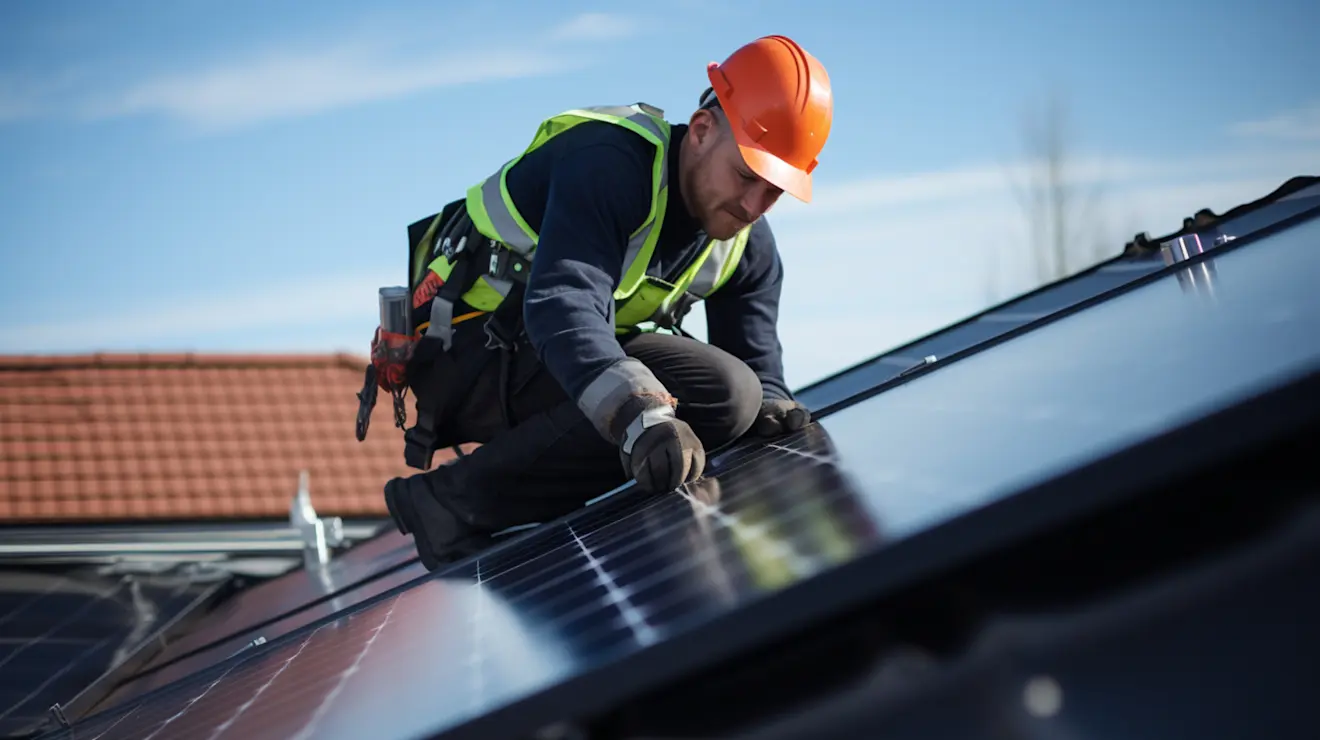How Do Solar Panels Actually Work?

“Any sufficiently advanced technology is indistinguishable from magic.” - Arthur C. Clarke.
For many people, the answer to “how does a solar panel work?” is: it just does. Technology happens and, like magic, electricity is created. It’s the same way most people think about smartphones. We don’t necessarily know how they function, but we’re glad they do (most of the time).
If you’re someone who’s not satisfied with the “magic” answer, this article will walk you through the science of how solar panels work.
From Rooftop to Reality: What You Can See
Solar Arrays and Modules
A solar array is a group of solar panels (also called modules) installed on your roof. Each panel is made up of many solar cells, typically arranged in a grid pattern. These cells are where sunlight gets transformed into electricity.
The Science Inside: Silicon, Electricity, and Photovoltaics
Silicon Layers and Electric Fields
Each solar cell contains two layers of silicon: one infused with a material that adds extra electrons (a negative charge) and one that lacks electrons (a positive charge). This creates an electric field.
When sunlight (specifically, photos) hits the cell, it knocks electrons loose from the negatively charged layer. These electrons flow toward the positively charged layer, creating an electric current.
Conductive Layers and Energy Transfer
The silicon layers are sandwiched between conductive metal plates, which guide the flow of electricity into wires that connect to an inverter. The inverter is essential. It converts direct current (DC) electricity (generated by the solar cells) into alternating current (AC), which is what your home uses.
Efficiency, Durability, and Longevity
Why Solar Panels Last for Decades
One of the great things about solar systems is the only moving parts are electrons. That means there’s minimal wear and tear. Most solar panels come with 25-year warranties, but they often last 30 to 40 years or more with only gradual reductions in efficiency.
How the Sun Can Reduce Performance
Ironically, the very thing that makes solar panels work, the sun, also contributes to their slow decline. Over decades, UV exposure and weathering can reduce the transparency of the panel glass and cause microcracks in the cells. Additionally, bus bar corrosion inside panels may reduce performance but usually doesn’t stop electricity generation entirely.
DIY Solar: Should You Install it Yourself?
Unless you are a licensed electrician, we strongly recommend hiring a professional. DIY installations often lead to safety risks, improper wiring, and roof leaks. Professionals not only handle high-voltage systems safely, but they are also trained to seal and flash your roof properly to prevent long-term damage.
Are Solar Panels Bad for the Environment?
Debunking a Common Myth
Some critics claim that producing solar panels is more harmful than helpful. That’s simply not true.
While solar panel manufacturing does produce carbon emission, the carbon payback period (the time it takes to offset the carbon used during production) is typically 1-4 years. After that, every year a panel is in use is a net environmental gain.
The Future of Secondhand Panels
Because solar panels don’t stop working completely, they just lose efficiency. There’s growing interest in a secondary market for used panels. These could be repurposed for underserved communities or areas with unreliable energy access.
Nonprofits and forward-thinking solar companies are exploring ways to make used panels affordable and impactful, especially in off-grid regions or during emergency disaster relief.
Solar vs. Fossil Fuels: The Big Picture
Even when considering the carbon footprint of solar panel production and potential future waste, solar energy remains one of the cleanest sources of electricity available today.
Compared to fossil fuels, solar energy contributes to fewer emissions, requires less water, and creates no air pollution during use.
Want to Learn More?
If you’re curious about how solar could work for your home or want to schedule an appointment with a SunPower expert, contact us today!